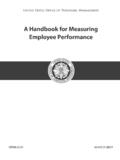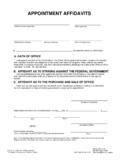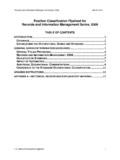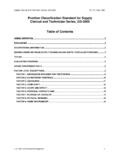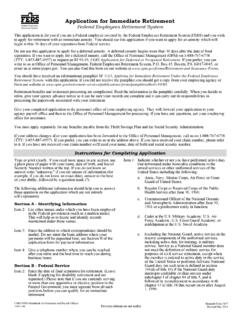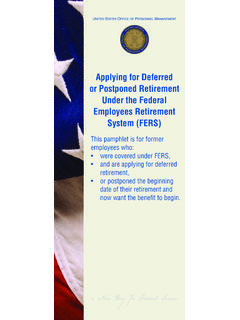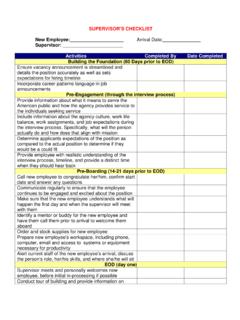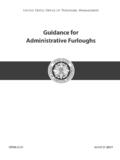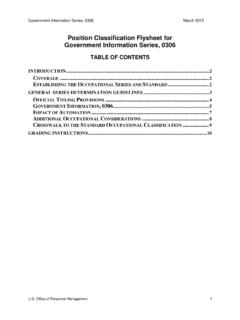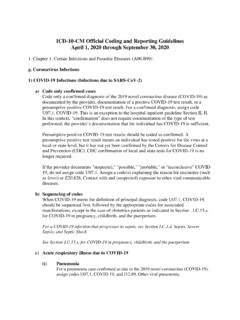Transcription of Questions and Answers on Human Resources Flexibilities …
1 Attachment to OPM Memorandum #2020-05 3/7/20 1 U. S. Office of Personnel Management Questions and Answers on Human Resources Flexibilities and Authorities for coronavirus disease 2019 (COVID-19) A. Determination of COVID-19 as a Quarantinable Communicable disease B. Telework C. Sick Leave and Other Time Off D. Weather and Safety Leave E. Evacuation Payments During a Pandemic Health Crisis F. Employee Relations G. Hazardous Duty Pay Related to Exposure to COVID-19 H. Workplace Precautions to Prevent Exposure to COVID-19 I. Office of Workers Compensation Programs (OWCP) A. Determination of COVID-19 as a Quarantinable Communicable disease (1) Is COVID-19 a quarantinable communicable disease pursuant to Executive Order ( ) 13295? The Centers for disease Control and prevention (CDC) has determined that COVID-19 meets the definition for severe acute respiratory syndromes set forth in 13674. Therefore, this novel coronavirus is a quarantinable communicable disease , as defined by 13295, as amended by 13375 and 13674.
2 Additional information on quarantinable communicable diseases is available from the CDC at B. Telework (1) Should an agency authorize weather and safety leave to a telework program participant who was exposed to a confirmed case of a quarantinable communicable disease , such as COVID-19? Use of weather and safety leave would be subject to the normal conditions for example, weather and safety leave may be granted only if an employee is not able to safely travel to or perform work at an approved location. Thus, an employee who is not a telework program participant would be granted weather/safety leave for quarantine periods under the direction of local or public health authorities. However, in the case of telework program participants, the employee s home is generally an approved location. Thus, the employee would generally be expected to perform telework at home as long as the employee is asymptomatic. (See 5 CFR ) If a telework program participant in these circumstances needs time off for personal reasons, then the employee would be expected to take other personal leave or paid time off ( , annual leave or sick leave to care for a family member).
3 2 (2) Generally, how should agencies manage telework during incidences of quarantinable communicable disease , such as COVID-19? For an employee covered by a telework agreement, ad hoc telework arrangements can be used as a flexibility to promote social distancing and can be an alternative to the use of sick leave for exposure to a quarantinable communicable disease for an employee who is asymptomatic or caring for a family member who is asymptomatic. An employee s request to telework from home while responsible for such a family member may be approved for the length of time the employee is free from care duties and has work to perform to effectively contribute to the agency s mission. The Telework Enhancement Act of 2010 requires agencies to incorporate telework into their continuity of operations plan. Agencies should have written telework agreements in place with as many employees who are willing to participate and communicate expectations for telework in emergency situations.
4 It is important for an agency to have a solid technology infrastructure established to support a high level and volume of connectivity, so employees can work seamlessly from their alternate locations ( , home) and maintain established records and security requirements. Managers, employees, and organizations must remain flexible and adapt to the changing environment. (3) In the event that local school systems are closed due to COVID-19, but Federal offices remain OPEN, is it permissible for a telework program participant to perform telework with a child in the home? An agency that has a general bar on teleworking when there are young children or other persons requiring care and supervision may choose to adjust its policies to allow, as a special exception, telework in those circumstances in the case of an emergency, such as the COVID-19 situation. Under such an exception policy, a teleworking employee would be expected to account for work and non-work hours during his or her tour of duty and take appropriate leave (paid or unpaid) to account for time spent away from normal work-related duties ( , to care for small children).
5 Agencies should address in their telework policies potential situations that may prevent or impact an employee s ability to effectively perform his or her duties at home. This includes policies regarding the conditions under which employees may telework, even if they have a young child or other person requiring the presence of a caregiver in the home. (For additional information please see OPM Guidance on Telework and Dependent Care at: ) If an agency policy bars an employee from teleworking at his or her home when there is a child or elder care situation, then the home is not an approved location under OPM s regulations. Since Federal offices remain OPEN, agencies may not authorize weather and safety leave to employees who cannot telework with children in the home. Employees should either report to their worksite or request annual leave or other paid time off if they are unable to report to the worksite. 3 (4) In the event that local school systems are closed due to COVID-19 and Federal offices are CLOSED, is it permissible for a telework program participant to perform telework with a child in the home?
6 An agency that has a general bar on teleworking when there are young children or other persons requiring care and supervision may choose to adjust its policies to allow, as a special exception, telework in those circumstances in the case of an emergency, such as the COVID-19 situation. Under such an exception policy, a teleworking employee would be expected to account for work and non-work hours during his or her tour of duty and take appropriate leave (paid or unpaid) to account for time spent away from normal work-related duties ( , to care for small children). Agencies should address in their telework policies potential situations that may prevent or impact an employee s ability to effectively perform his or her duties at home. This includes policies regarding the conditions under which employees may telework, even if they have a young child or other person requiring the presence of a caregiver in the home. (For additional information please see OPM Guidance on Telework and Dependent Care at: ) If an agency policy bars an employee from teleworking at his or her home when there is a child or elder care situation, then the home is not an approved location under OPM s regulations.
7 Since Federal offices remain CLOSED, agencies may authorize weather and safety leave to employees who cannot telework with children in the home under agency policies and cannot safely travel to or perform work at the regular office location. (5) What happens if an employee does not have a sufficient amount of work to perform to cover the entire telework day during incidences of COVID-19? An employee must always have a sufficient amount of work to perform throughout the workday when he or she teleworks. An employee performing telework who does not have enough work must notify his or her supervisor and receive additional work or discuss leave options such as annual leave, advanced annual leave, other paid time off ( , earned compensatory time off, earned credit hours), or leave without pay. (6) Does an agency possess the authority to have their telework program participants work from home during an agency closure due to COVID-19?
8 Yes. During an agency closure due to COVID-19, when an agency Continuity of Operation Plan (COOP) has not been initiated and the World Health Organization has NOT declared a pandemic, telework program participants will generally be expected to continue working from home. All telework program participants will be ineligible for weather and safety leave during a closure except in rare circumstances when one of the exceptions under 5 CFR (a)(2) applies. They must telework for the entire workday, take other leave (paid or unpaid) or other time off, or use a combination of telework and leave or other paid time off. (Note: A telework program participant may also be referred to as a telework-ready employee.) For more information, please see: 4 (7) Can an agency order an employee to telework during a COOP event? Yes. The Telework Enhancement Act of 2010 states that each executive agency shall incorporate telework into the continuity of operations plan of that agency.
9 Employees participating in an agency telework program can be leveraged during a COOP activation. If an agency COOP plan is in operation, that plan shall supersede any telework policy, (see 5 6504(d)(2)) and allow greater flexibility to expand telework to a larger segment of the workforce in support of agency operations) so that as many employees as possible are working during a COOP activation. C. Sick Leave and Other Time Off (1) If an employee, who has been receiving weather and safety leave due to exposure to COVID-19, becomes symptomatic (ill), should he or she continue to receive weather and safety leave? No. Sick leave would be used to cover such a period of sickness, as provided in 5 CFR (a)(2). Agencies must grant sick leave when an illness, such as COVID-19, prevents an employee from performing work. (2) If an employee runs out of sick leave, can the agency grant advanced sick leave to an employee who is ill (symptomatic) due to a quarantinable communicable disease , such as COVID-19, or must care for a family member who is ill?
10 Yes. However, while sick leave may be advanced at an agency s discretion, it is not an employee entitlement. The sick leave regulations allow an employee to be advanced sick leave for exposure to a quarantinable communicable disease , subject to the limitations below: 240 hours (30 days) may be advanced if the employee would jeopardize the health of others by his or her presence on the job because of exposure to a quarantinable communicable disease ; 104 hours (13 days) may be advanced if the employee is providing care for a family member who would jeopardize the health of others by his or her presence in the community because of exposure to a quarantinable communicable disease . (3) Must an employee have a doctor s note if requesting to use sick leave for 3 days or more due to an illness from a quarantinable communicable disease , such as COVID-19? Not necessarily. Under OPM s regulations (5 CFR (a)), an agency may grant sick leave only when the need for sick leave is supported by administratively acceptable evidence.
